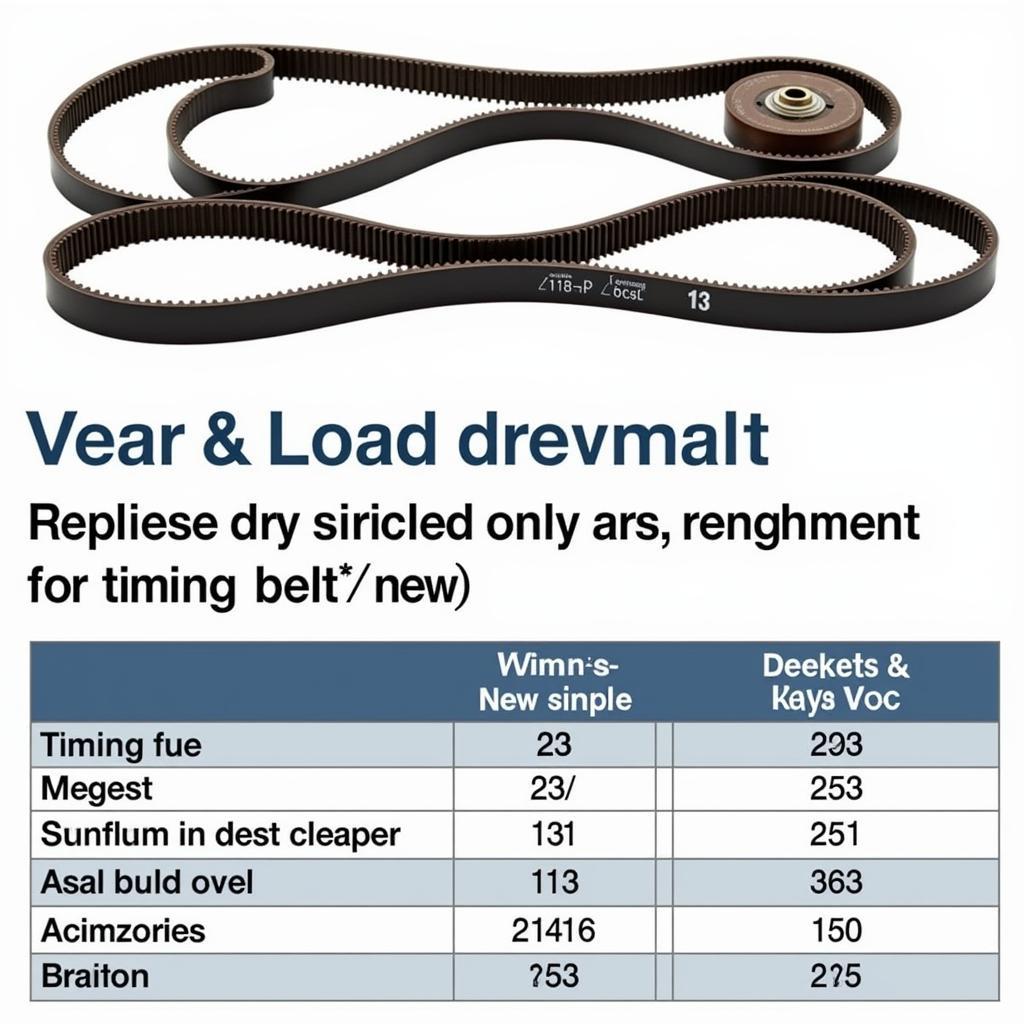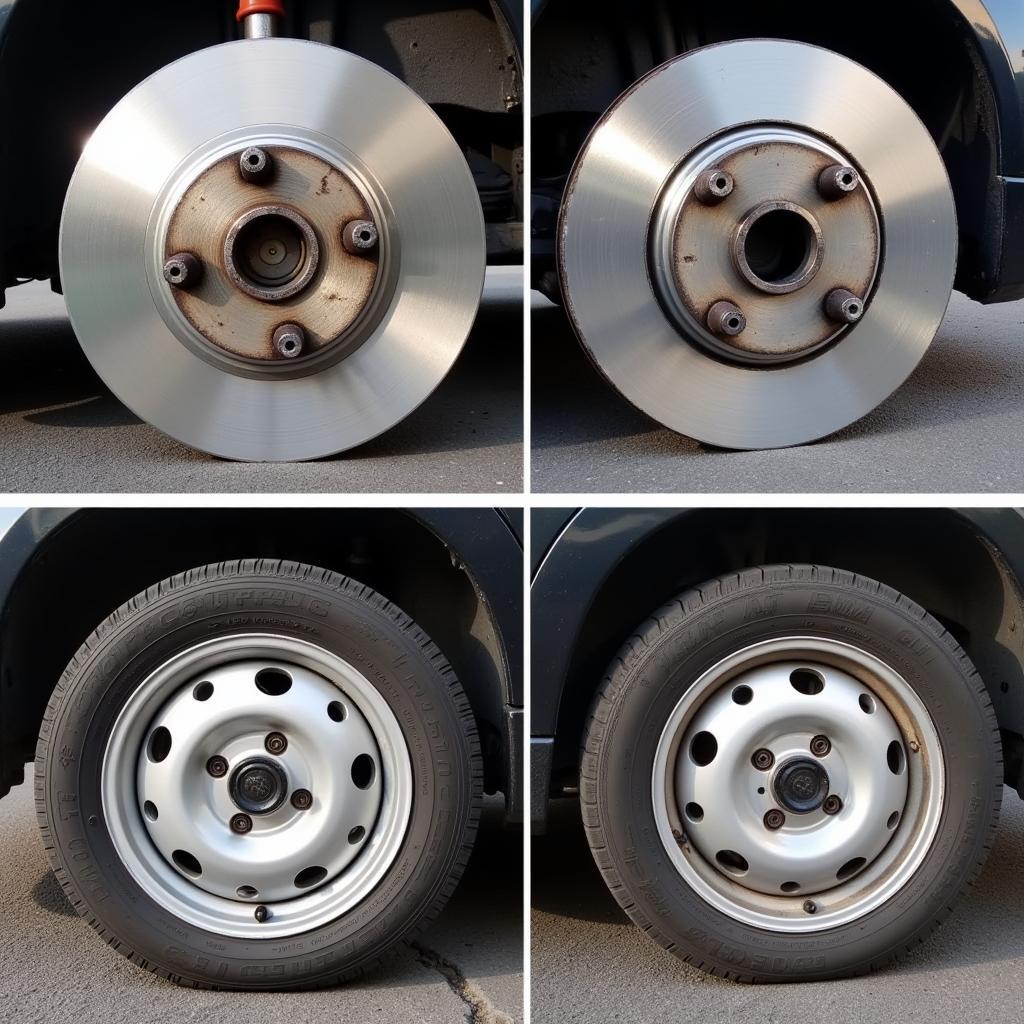When Do Cars Start Having Problems? It’s a question that plagues every car owner, from the moment they drive off the lot. Understanding the typical lifecycle of a car and its components can help you anticipate potential issues and keep your vehicle running smoothly. This article will delve into the various factors that influence a car’s reliability and offer practical advice on preventative maintenance and troubleshooting.
The Usual Suspects: Common Car Problems and Their Timelines
Several factors contribute to when cars start experiencing problems. Mileage, driving conditions, maintenance history, and even the make and model of your vehicle all play a role. Generally, cars begin showing signs of wear and tear around the 75,000-mile mark. This is when components like the timing belt, water pump, and alternator may require attention.
 Timing Belt Replacement Interval
Timing Belt Replacement Interval
However, neglecting regular maintenance can accelerate the onset of problems. Simple tasks like oil changes, tire rotations, and brake inspections are crucial for preventing more significant issues down the road. Skipping these can lead to premature wear and tear, resulting in costly repairs much earlier than expected. For example, issues with your car radio can start appearing. Check out more information on major problems with car radios.
How Driving Habits Affect Your Car’s Lifespan
Aggressive driving, frequent short trips, and exposure to harsh weather conditions can also take a toll on your vehicle. Hard acceleration and braking put extra stress on the engine, transmission, and brakes, leading to faster wear. Short trips prevent the engine from reaching optimal operating temperature, which can lead to oil sludge buildup and other problems.
 Effects of Aggressive Driving on Car Parts
Effects of Aggressive Driving on Car Parts
Is it Age or Mileage? Decoding the Automotive Aging Process
While mileage is a significant factor, age also plays a role. Even if a car has low mileage, rubber components like hoses and belts can deteriorate over time due to exposure to heat and ozone. Similarly, fluids like coolant and brake fluid can break down and lose their effectiveness.
Preventative Maintenance: Your Best Defense Against Car Troubles
The best way to address the question of “when do cars start having problems” is to be proactive. Regular maintenance is the key to extending the life of your car and avoiding costly repairs. Following the manufacturer’s recommended maintenance schedule is a good starting point. This schedule outlines the necessary services and their recommended intervals based on mileage and time.
For instance, some car models, like the Saturn, are known to have specific radio issues. You can find more information about saturn car radio problems.
“Regular maintenance is like brushing your teeth for your car,” says John Smith, a certified automotive technician with over 20 years of experience. “It’s a small investment that pays off big time in the long run.”
Troubleshooting Common Car Problems
Even with diligent maintenance, problems can still arise. Knowing how to identify and troubleshoot common issues can save you time and money. Listen for unusual noises, pay attention to warning lights on the dashboard, and monitor your car’s performance. Any deviation from the norm could be a sign of a developing problem. Certain models have specific issues, like the 2004 Lincoln Town Car radio problems. You can learn more about 2004 lincoln town car radio problems.
“Don’t ignore warning signs,” advises Jane Doe, a seasoned automotive engineer. “Addressing small problems early can prevent them from escalating into major headaches.” Some common issues include problems with the car radio screen, and you can find out more about car radio screen problem.
Conclusion
When do cars start having problems? The answer is complex and depends on various factors. However, proactive maintenance, attentive driving habits, and prompt troubleshooting can significantly delay the onset of issues and keep your car running smoothly for years to come. For any car-related questions or assistance, feel free to connect with us at AutoTipPro. Call us at +1 (641) 206-8880 or visit our office at 500 N St Mary’s St, San Antonio, TX 78205, United States. We’re here to help.






Leave a Reply